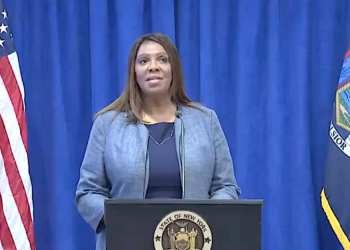
Everyone is into predicting the future these days and the record for accuracy is pretty dismal.
If one predicts a future that has any real pain in it you can be assured that no one will pay attention. To get a little perspective on this human tendency we might do well to look at Cassandra, a Greek mortal who caught the eye of the great god Apollo. How all this works in the real world is a bit of a mystery but put logic aside and listen to Cassandra”™s story.
Apollo sought to acquire the beautiful mortal so, to get her attention, he bestowed on her the gift of prophesy.
Â
Cassandra was grateful for this unique gift but was not persuaded that taking Apollo as a lover was in her best interests. Nonetheless, when Apollo agreed to teach her how to use her great gift, she relented and agreed to his entreaties. However, when the lessons were over Cassandra decided that she”™d rather remain a mortal.
Â
This naturally angered Apollo so he leveled a terrible curse on her head. She would still be able to foresee the future but no one would believe her. Every time she attempted to warn people of impending doom she was ignored or even thought to be insane. As an example she warned Troy about the gift of that infamous horse. No one listened and we know how that turned out.
That was then. This is now.
Have we improved our skills at predicting the future or are we only paying attention to the good news predictions?
Â
Last spring Fed Chairman Ben Bernanke introduced us to “the green shoots” as a way to encourage members of the public to believe that the good times might be returning. At the time the unemployment rate was at 8.5 percent and we know that it continued to soar but last spring the implication was that there was the hint of a growing confidence about the future. However, others during the same period pointed out that “in a desert, anything looks like new growth.”
Compulsive optimism, otherwise known as “grasping at straws,” is a deeply ingrained habit for many economists as well as the public. This was evident in May when the National Association of Business Economists stated that they expected the recession to end “soon.” Even so, the NABE economists expected a further decline in the economy in the second quarter of 2009 “making for the most severe economic contraction in over half a century.”
Nonetheless, the 2010 Economic Outlook put out by the Bank of New York Mellon Corp. (11-03-09) maintains that the U.S. and global recessions are over and that sustained economic recoveries have begun. As we approach the close of 2009 none of the predictions have been able to provide a realistic picture of where this nation is headed. It is just not in the DNA of economists to allow the possibility that any serious roadblocks will surface on the road to returning to life as we have known it.
Call me Cassandra, but ”¦
There is no real disagreement about the fact that we are in a recession and that we could begin to see some encouraging signs of recovery in 2010. But there are some powerful signs that suggest this recession may not follow the usual scenario. With one in four mortgage holders “under water” and unemployment continuing to rise, though at a slower pace in spite of the optimism, there appears to be a serious contraction going on in the U.S. economy.
Â
At the risk of being called a Cassandra I would like to suggest a historic perspective on human history as a way of suggesting where we may be headed. We began as “hunter gatherers” and evolved into an “agricultural society,” ultimately moving into the “industrial age.” In the last decades the “information age” emerged, as our industrial base shrank. But another age is just over the horizon and no one seems willing to suggest what it might be. In my view this is the likely possibility.
The earth is a finite entity and accordingly it has a “carrying capacity,” meaning enough water and arable land to sustain life. However, what life are we talking about? A person living in Scarsdale or a person in an African village? This country has set the standard for living on earth and now a large part of the world wants to waste as much as we do.

















